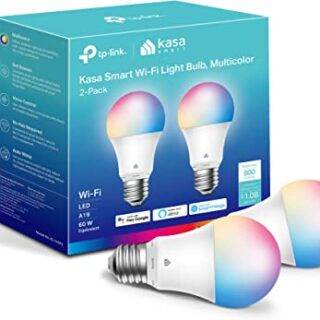Table of Contents
ToggleIntroduction

Are you considering purchasing a used electric car? Congratulations on making a choice that benefits both your wallet and the environment! However, before you take the leap, there are a few things you should keep in mind.
In this blog, we will discuss the top 10 things you should know before buying a used electric car. From understanding the difference between electric and hybrid cars, to checking the battery life and range, we will cover all the essential information that will help you make an informed decision.
We will also provide you with tips on where to find reliable used electric cars, and how to negotiate a fair price. Additionally, we will discuss the importance of checking for recalls and getting a thorough inspection before making your purchase.
By the end of this blog, you will be equipped with the knowledge necessary to confidently navigate the used electric car market and make a smart investment. Let’s get started!
Why To By An Used Electric Car Instead of A New One
If you’re in the market for an electric car, you may be wondering whether to buy new or used. While there are certainly benefits to purchasing a brand-new electric car, buying a used one can also be a smart choice.
First and foremost, buying a used electric car is often much more affordable than buying a new one. As with any vehicle, new electric cars come with a premium price tag, while used ones can often be found at a fraction of the cost. This can make EV ownership accessible to a wider range of consumers.
Additionally, used electric cars often come with the same tax incentives and other benefits as new ones, which can further reduce the overall cost of ownership. And because electric vehicles have fewer moving parts than traditional gas-powered vehicles, there is typically less wear and tear on used electric cars, making them more reliable over the long term.
Buying a used EV can be a more sustainable choice, as it helps to extend the life of existing vehicles and reduces the need for new car manufacturing, which has a significant environmental impact. Overall, there are many compelling reasons to consider purchasing a used EV instead of a new one.
10 Things To Know
1. Use the Battery Life as a Bargaining Chip
If you’re in the market for a used electric car, one thing you should definitely consider is the battery life. Batteries are a key component of EVs and can be quite expensive to replace if they’re nearing the end of their life.
When bargaining with a seller, you can use the battery life as a bargaining chip. Ask the seller for the battery’s health status and check how many miles it can still travel on a single charge. If the battery is close to the end of its life, you can use this information to negotiate a lower price for the vehicle.
Be sure to do your research beforehand and know what a fair price is for the vehicle you’re interested in. Keep in mind that some EV manufacturers offer warranties on their batteries, so be sure to check if the vehicle you’re interested in is still covered under warranty.
Using the battery life as a bargaining chip can help you save money when purchasing a used EV. Just be sure to do your due diligence and negotiate in a friendly and respectful manner.
2. Find Out if the Battery Got Replaced
When considering buying a used electric car, it’s important to check the battery’s health and find out if it has been replaced. A new battery can add significant value to the vehicle, but it’s also an expensive investment.
To find out if the battery has been replaced, you can ask the seller for documentation such as receipts or service records. You can also use diagnostic tools to check the battery’s health status and see if it matches the age of the vehicle.
If the battery has been replaced, it’s important to know the reason for the replacement. Was it due to routine maintenance or because of a fault? Knowing this information can give you a better idea of the vehicle’s overall condition.
If the battery has not been replaced, you can ask the seller for information on its health and estimated lifespan. This information can help you make an informed decision on whether or not to purchase the vehicle.
Finding out if the battery has been replaced is an important step when considering a used electric car. Just be sure to ask in a friendly and respectful manner and do your due diligence before making a purchase.
3. Investigate How Much Battery Warranty is Left
First, check the manufacturer’s website for information on the original battery warranty. This will give you an idea of how long the battery is supposed to last and what type of coverage is included.
Next, check the vehicle’s service records to see if the battery has been replaced or serviced. If the battery has been replaced, ask for documentation on the replacement battery’s warranty.
If the original battery is still in the vehicle, you can usually check the remaining battery warranty by using the vehicle identification number (VIN) to contact the manufacturer’s customer service department. They can provide you with information on the battery’s remaining warranty coverage.
It’s important to note that battery warranty coverage can vary depending on the manufacturer, the age and mileage of the vehicle, and other factors. Be sure to do your research and ask questions to ensure you have a clear understanding of the battery warranty status before purchasing a used EV.c
4.Ask About Maintenance History
When considering buying a used electric car, it’s important to ask about its maintenance history. Here are some tips on what to ask and look for when investigating the maintenance history of a used electric car.
First, ask the seller or dealer for any maintenance records they have on the vehicle. This can include receipts for repairs or maintenance, as well as documentation of any software updates or recalls
Next, ask about any major repairs or replacements that have been done on the vehicle, such as battery replacements or motor repairs. This can give you an idea of the overall health of the vehicle and how well it has been maintained.
It’s also important to ask about the regular maintenance schedule for the vehicle, such as when the tires were last rotated or when the brakes were last serviced. This can give you an idea of how well the vehicle has been taken care of and what maintenance tasks you may need to do in the future.
Finally, consider having a professional inspection done on the vehicle before making a purchase. An inspection can uncover any potential issues that may not be immediately apparent and give you peace of mind knowing you’re making an informed purchase.
5.Locate the Battery’s Charging Capacity
If you’re considering buying a used electric car, it’s important to know the battery’s charging capacity. Here are some tips on how to locate and understand the charging capacity of a used car’s battery.
First, check the manufacturer’s website for information on the battery’s charging capacity. This will give you an idea of the maximum range the vehicle can travel on a single charge.
Next, look for the battery’s charging capacity in the vehicle’s owner’s manual or on the battery itself. This information can usually be found in the section on battery specifications.
It’s important to note that the battery’s charging capacity can decrease over time and with use. This is known as battery degradation. If possible, ask the seller or dealer for information on the battery’s health and any battery degradation that has occurred.
Finally, consider having a professional inspection done on the vehicle’s battery before making a purchase. This can give you a more accurate picture of the battery’s health and any potential issues you may need to address.
By understanding the battery’s charging capacity, you can make a more informed decision about whether a used EV is right for you and what type of range you can expect from the vehicle.
6.Determine What Range You Need from the Used Electric Car
When considering buying a used electric car, it’s important to determine what range you need. Here are some tips on how to determine the range you need from a used electric car.
First, consider your daily driving habits. How far do you typically drive in a day? Will you need to make frequent stops to recharge the battery? Knowing your daily driving needs can help you determine the range you need from a used EV.
Next, consider any longer trips you may take. Will you need to travel long distances or make frequent stops for charging? If so, you may need a used EV with a longer range.
It’s also important to consider the climate in your area. Cold weather can decrease the battery’s range, so if you live in a colder climate, you may need a used EV with a longer range.
Finally, consider any charging options available to you. Do you have access to a charging station at home or work? If not, you may need a used EV with a longer range to accommodate longer periods between charging
By determining the range you need from a used EV, you can make a more informed decision about what type of vehicle is right for you and your driving needs.
7.Know That Not All Electric Vehicles Charge at the Same Rate
When considering buying a used electric vehicle (EV), it’s important to know that not all EVs charge at the same rate. Here are some tips on what to consider when looking at the charging rate of a used EV.
First, check the manufacturer’s website or owner’s manual for information on the charging rate of the EV. This will give you an idea of how long it will take to charge the battery and what type of charging station is required.
Next, consider the type of charging station you have access to. Level 1 charging uses a standard household outlet and is the slowest charging option. Level 2 charging requires a special charging station and is faster than Level 1 charging. DC fast charging is the fastest charging option and requires a specialized charging station.
It’s also important to note that not all electric cars are compatible with all types of charging stations. Be sure to check the manufacturer’s website or owner’s manual to ensure that the EV you’re considering is compatible with the charging stations available to you.
By understanding the charging rate of a used electric cra, you can make a more informed decision about what type of charging station you’ll need and what your charging times will be.
8. Used EV Tax Credit
The used EV tax credit is a government incentive that encourages the purchase of electric vehicles (EVs). Here are some things you should know about the used EV tax credit.
First, the used EV tax credit is only available for new EV purchases. It cannot be applied to used EVs.
Second, the used EV tax credit is a federal tax credit that can be applied to your income taxes. The credit amount varies depending on the make and model of the EV and can range from $2,500 to $7,500.
Third, the used EV tax credit begins to phase out once a manufacturer has sold 200,000 qualifying EVs. Tesla and GM have already reached this threshold, so their EVs are no longer eligible for the tax credit.
Finally, it’s important to note that the used EV tax credit can only be claimed by the original purchaser of the vehicle. Leased EVs may also be eligible for the tax credit, but the credit is typically claimed by the leasing company.
By taking advantage of the EV tax credit, you can save money on your new EV purchase and help promote the use of environmentally-friendly vehicles.
9.Research Government and Utility Incentives
When considering buying a used electric car, it’s important to research government and utility incentives that may be available to you. Here are some tips on what to consider when researching incentives for a used electric car.
First, check with your state or local government for any incentives or rebates that may be available for purchasing a used electric car. Some states offer incentives for purchasing used EVs, while others offer incentives for installing home charging stations.
Next, check with your local utility company for any incentives or rebates they may offer for electric car owners. Some utility companies offer lower rates for EV charging or may provide incentives for purchasing a used electric car.
It’s also important to consider the federal tax credit for electric cars. While this credit is only available for new Electric car purchases, it may still be worth considering when comparing the overall cost of a new electric car
Finally, consider any other incentives that may be available to you, such as free public charging or HOV lane access.
By researching government and utility incentives for a used EV, you can make a more informed decision about the overall cost of ownership and what type of incentives may be available to you.
10.Check for All Charging Accessories
When considering buying a used electric vehicle (EV), it’s important to check for all charging accessories that come with the vehicle. Here are some tips on what to look for when checking for charging accessories.
First, check that the vehicle comes with a charging cable. Most electric caes come with a Level 1 charging cable, which can be used to charge the vehicle using a standard household outlet.
Next, check for any additional charging cables that may come with the vehicle. Some EVs may come with a Level 2 charging cable or an adapter for a specific type of charging station.
It’s also important to check for any charging accessories, such as a charging station holster or carrying case for the charging cable.
Finally, check that all charging accessories are in good condition and working properly. Look for any signs of wear or damage to the cables or accessories, and ensure that the charging cable fits properly in the vehicle’s charging port
By checking for all charging accessories for a used EV, you can ensure that you have everything you need to charge the vehicle and avoid any unexpected costs for additional accessories.
Conclusion
In conclusion, buying a used electric car can be a great way to save money while still enjoying the benefits of driving an environmentally-friendly vehicle. However, there are some important things to consider before making a purchase. First, investigate the battery warranty and maintenance history of the vehicle to ensure that the battery is in good condition. Second, consider the range you need from the vehicle and the charging options available to you. Third, research any government and utility incentives that may be available for purchasing a used EV.
Other important factors to consider include the charging rate of the vehicle, your access to EV chargers, and the availability of all necessary charging accessories. By doing your research and asking the right questions, you can make an informed decision about whether a used EV is right for you and what type of vehicle will best suit your needs. Overall, taking the time to consider these factors can help ensure that you make a smart and responsible purchase that will provide you with years of enjoyable and environmentally-friendly driving.
To Know More, CLICK HERE











Leave a Reply